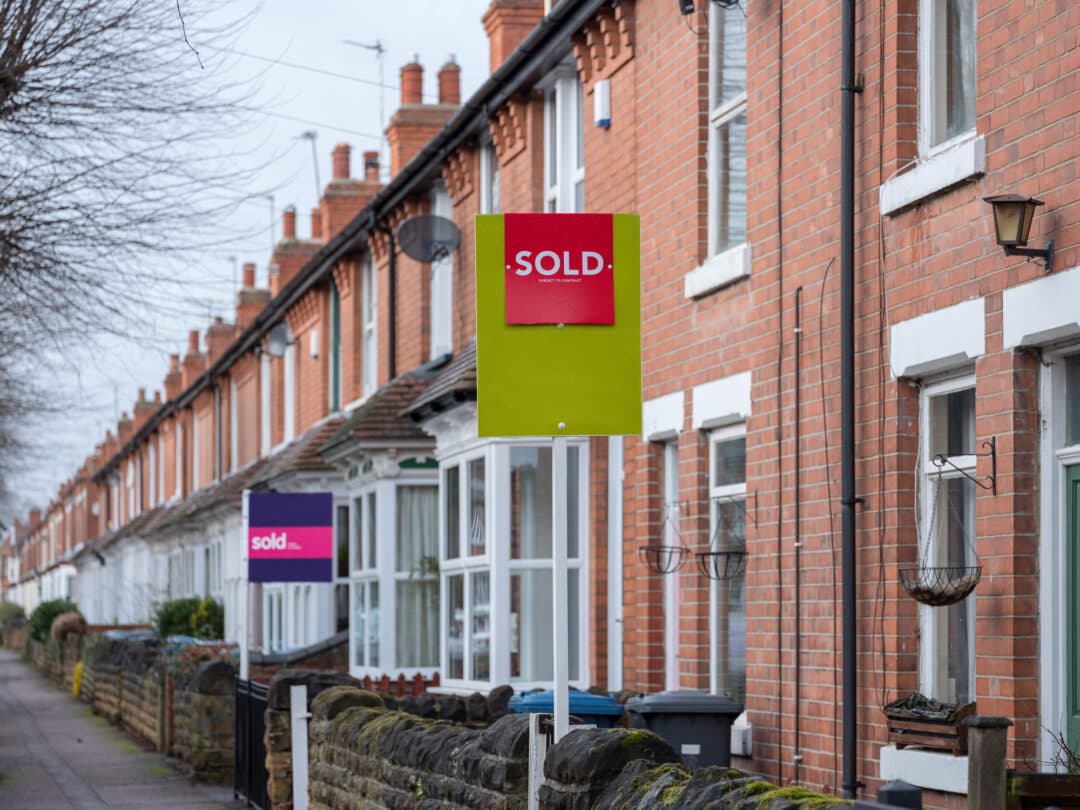Stamp Duty: Today’s Most Taxing Property Issue

Stamp Duty: Today’s Most Taxing Property Issue
Stamp duty has always been a contentious point in property. To give it its full name – Stamp Duty Land Tax, or SDLT as it is commonly shortened to – it can make or break the flow of home moves.
At the moment, sentiment surrounding stamp duty is very negative. As if property buyers weren’t unhappy enough with paying thousands of pounds to HMRC upon completion of a purchase, a leak to the press sent shockwaves through the property industry.
Stamp duty’s days could be numbered
An ‘unnamed’ source told The Guardian the Treasury was considering scrapping stamp duty. Cheers among the moving masses were quickly silenced by news that stamp duty could be replaced by a potentially more punitive tax.
The leak went on to detail how senior ministers have commissioned a study to ascertain how a new ‘proportional’ property tax could work in place of stamp duty. If accurate, a new levy would be payable by owner-occupiers on houses worth more than £500,000 when they sell their home, shifting the bill away from property purchasers. Central Government would set the amount of tax to be paid using the property’s value.
More tax payable on additional purchases?
Although the proposals suggest stamp duty would still apply to additional purchases, such as holiday homes, buy-to-lets and Airbnbs, the Government is considering increasing the rate of stamp duty applied to purchases that aren’t bought for owner occupation. Many landlords already find themselves in a precarious financial situation and any increase in stamp duty would discourage further investment and become a barrier for new landlords entering the buy-to-let market.
One rule for one… a huge Government faux pas
If that wasn’t enough to infuriate the nation, the Government compounded the matter with an ill-timed own goal when a senior figure was found to have massively underpaid a stamp duty bill. As Secretary of State for Housing, Communities and Local Government at the time of her property purchase, Angela Rayner should have had more awareness over her stamp duty bill.
Sadly, she made her position completely untenable when, in September this year, Rayner admitted to underpaying stamp duty to the tune of £40,000. Those around her tried to blame the mistake on poor legal advice but as the person in charge of the country’s property market, she found herself with no option but to resign.
Tinkering with stamp duty is a long-held way of increasing Government revenue as it’s a compulsory tax. With a reputed financial black hole of circa £51 billion, many are bracing for further change in this Autumn’s Budget.
Stamp duty slows the market
Ironically, the Government may be about to shoot itself in the foot by bringing in changes that will stifle home buying, rather than increase stamp duty receipts. We only have to look back to earlier this year to see how stamp duty alterations affected the market. April 2025 saw stamp duty thresholds return to their higher pre-pandemic levels.
HMRC’s figures showed UK residential property transactions plummeted in line with the revised rates, decreasing 64% in a four-week period. As a reminder of what happened, the zero-rate stamp duty threshold was cut from £250,000 to £125,000, while the first-time buyers were required to pay tax on homes worth £300,000 or more – down from £425,000.
While summer’s home movers had time to get used to the revised stamp duty thresholds, the future looks uncertain. Even the mere rumour of more tax to pay is slamming the breaks on the property market, with evidence already emerging.
Sellers will shun the market
A new survey of more than 1,000 homeowners across England, conducted by TLF Research for Boon Brokers, set out to establish reactions to potential stamp duty reforms. Of those questioned, 51% would be less likely to buy property if there was a new annual tax. In addition, 35% would be less likely to sell if sellers had to pay and 51% would be less likely to buy higher-value properties if an annual property tax was introduced.
Regional pain forecast
Additional research by eXp UK revealed the impact of a new property tax levied on homes worth £500,000 or more would be most notable in the South, where property markets could stall altogether. It found sellers were most likely to refuse to move in light of a new tax in London, the South East and the East of England. These locations are where 53.3%, 27.3% and 20.4% of homes, respectively, sell for at least £500,000.
Tax already hindering home moves
Stamp duty is one of the biggest barriers to homeownership, with the astronomical tax almost impossible for people to save for on top of a deposit. Research released earlier this year by HomeOwners Alliance illustrated the severity of the situation. It found 19% of UK homeowners considered moving in the past two years but decided not to go ahead. Of those, 24% cited stamp duty that was too expensive as the reason why they didn’t buy a home.
At the time of writing, there were rumours that the Government was considering letting buyers pay for stamp duty in instalments over a number of years, but many experts worry this is a speculation merely designed to counteract bad press.
Abolish altogether?
If the Government wants to encourage more property sales, scrapping stamp duty would be a positive step. It is a course of action that most estate agents in England support, as discovered by GetAgent when it conducted a new poll of estate agents. Although 92% of respondents believed removing upfront stamp duty costs would encourage more buyers to enter the market, 79% said stamp duty should be scrapped without any replacement.
Worryingly for the future, 96% of those agents expected sellers to increase their asking prices to offset the cost of any new property tax, which would further jeopardise the affordability of home moves and the volume of completions.
That, however, begs the question of where the Government would earn revenue from. The idea of a ‘mansion tax’ only applied to the country’s most expensive homes remains popular, although this figure would be very relative depending on where in the country each property was.
Date of destiny
Rachel Reeves will deliver her second Budget as Chancellor on Wednesday 26th November – a date which the Viewber team has marked on the calendar. We’ll report on any stamp duty and wider property news in forthcoming blogs.



